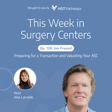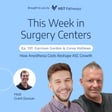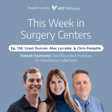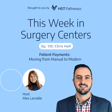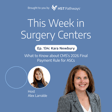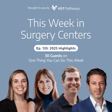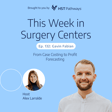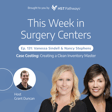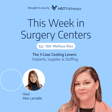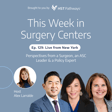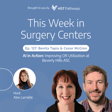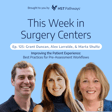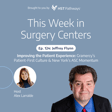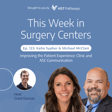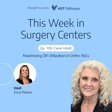
Tina Piotrowski – Q+A: How to Prepare for and Navigate Board-Level Conversations
Tina Piotrowski is the CEO of Copper Ridge Surgery Center. A few weeks ago, at ASCA, Tina joined HST’s session as a panelist alongside Dr. David Shapiro and Nick Latz to discuss How to Prepare for and Navigate Board-Level Conversations. The session was very well received, so much so that we had a bunch of questions that we couldn’t get to because we ran out of time. Tina has been gracious enough to give us a few more minutes of her time so that we can get those questions answered today.
In our news recap, we’ll cover highlights from the ASCA conference a few weeks ago. With over 1,200 attendees, 50 sessions, and 150+ exhibitors, it’s always a great week for knowledge sharing and networking, and there were six common themes I kept hearing over the week. So I’ll shed some light on those and, of course, will still end the news segment with a positive story that came out of ASCA.
Download the slides from the ASCA session: https://www.hstpathways.com/wp-content/uploads/2024/04/ASCA-2024-Speaker-Slides-Nick-Latz.pdf
View the news recap in more detail: https://www.hstpathways.com/blog/asca-2024-recap-hot-topics-new-specialties-and-whats-to-come/
Brought to you by HST Pathways.
